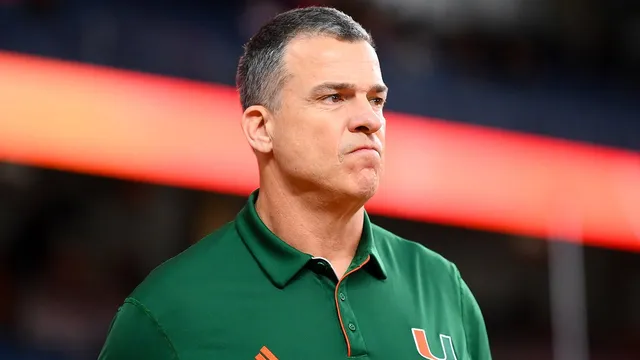
Nico Iamaleava skips practice amid NIL contract dispute
2025-04-14 12:30- Nico Iamaleava missed practice on April 11, 2025, due to discussions surrounding his NIL contract.
- He is reportedly seeking to increase his annual earnings from $2.4 million to $4 million.
- His absence has led to frustration among fans and teammates, complicating his ongoing negotiations.
Express your sentiment!
Insights
In the United States, Nico Iamaleava, the Tennessee quarterback, missed practice on Friday, April 11, 2025, primarily due to ongoing negotiations regarding his Name, Image, and Likeness (NIL) contract. Reports indicated that Iamaleava is seeking to nearly double his current earnings from $2.4 million to $4 million annually ahead of the spring transfer portal opening soon. Iamaleava's absence surprised many within the Tennessee football program, which heightened the scrutiny surrounding his contract negotiations. The latest developments in college athletics have made such negotiations more public, often leading to controversy and fan disappointment. The situation escalated following reports that Iamaleava was involved in substantive contract talks aimed at restructuring his NIL agreement ahead of the 2025 season. As he is entering his second year as Tennessee's starting quarterback, there is a sense of urgency for reconstructing a deal that reflects the current trends in the college sports market. Many comparable players have recently secured contracts exceeding his current deal, prompting Iamaleava to seek a pay raise. However, there are concerns among Tennessee officials regarding caving to Iamaleava’s demands, which could pave the way for other players to request similar negotiations. Iamaleava was previously among the top prospects in the 2023 recruiting class, signing a contract originally worth $8 million over his college career when he joined the Volunteers. Despite showing promise during his freshman season, throwing for 2,616 yards with 19 touchdowns and five interceptions, his negotiation tactics are controversial as he skipped practice while being compensated. This has displeased many fans and raised questions about the dynamics of athlete negotiations in college sports. As the spring transfer window nears closure, the focus on Iamaleava’s absence at practice and ongoing contract talks could have potential ramifications for the quarterback's future at Tennessee. Observers from around college football are keeping a keen eye on this developing narrative, as Iamaleava's situation sheds light on the intersection of NIL deals, player performance expectations, and the burgeoning professionalization of college athletics. This climate has inevitably caused significant tension both within the team and with the administration, with implications for the upcoming season and beyond.
Contexts
The college football transfer portal plays a crucial role in the landscape of student-athlete movement within NCAA Division I football. Established to promote player mobility, the transfer portal allows athletes to enter their names to seek opportunities at other institutions. Once a player enters the portal, they are free to be contacted by other college programs, enabling them to explore different scholarship offers and playing opportunities. The process is intended to create a more equitable system for athletes, providing them with greater agency over their academic and athletic careers. The importance of the transfer portal can be seen in its impact on roster management for coaches, recruitment strategies, and the overall competitive balance of collegiate programs. The rules surrounding the transfer portal have evolved, with significant updates aimed at streamlining the process for student-athletes. After entering the portal, players typically retain the ability to return to their original program if they do not secure a transfer, provided they have not signed a scholarship agreement with another institution. This safeguard encourages athletes to explore their options without the fear of being permanently locked out of their current school. Furthermore, since the 2021 season, NCAA rules have allowed for a one-time transfer without penalty. This means that athletes who choose to transfer do not have to sit out a year of competition, thus accelerating their ability to contribute to their new team immediately. Despite the positive aspects of the transfer portal, it has also led to challenges, including concerns about the potential for increased player turnover and the impact on team chemistry. Coaches now face the pressure of constantly managing their rosters as players may leave unexpectedly, resulting in a reactive recruitment environment. The shift has required programs to adapt quickly, focusing not only on high school recruits but also on securing talent in the transfer market. As a result, some teams have constructed rosters heavily composed of transfers, altering traditional recruitment practices and potentially leading to questions about the development of homegrown talent within programs. In conclusion, the rules around the college football transfer portal are significant in shaping student-athlete experiences and institutional strategies. While the portal aims to empower athletes, it simultaneously challenges traditional norms of roster management and team planning within the NCAA framework. As the landscape of college football continues to evolve, it will be crucial for stakeholders, including coaches, athletic departments, and policymakers, to monitor the effects of the transfer portal and adapt accordingly to ensure that it serves the best interests of the athletes involved.